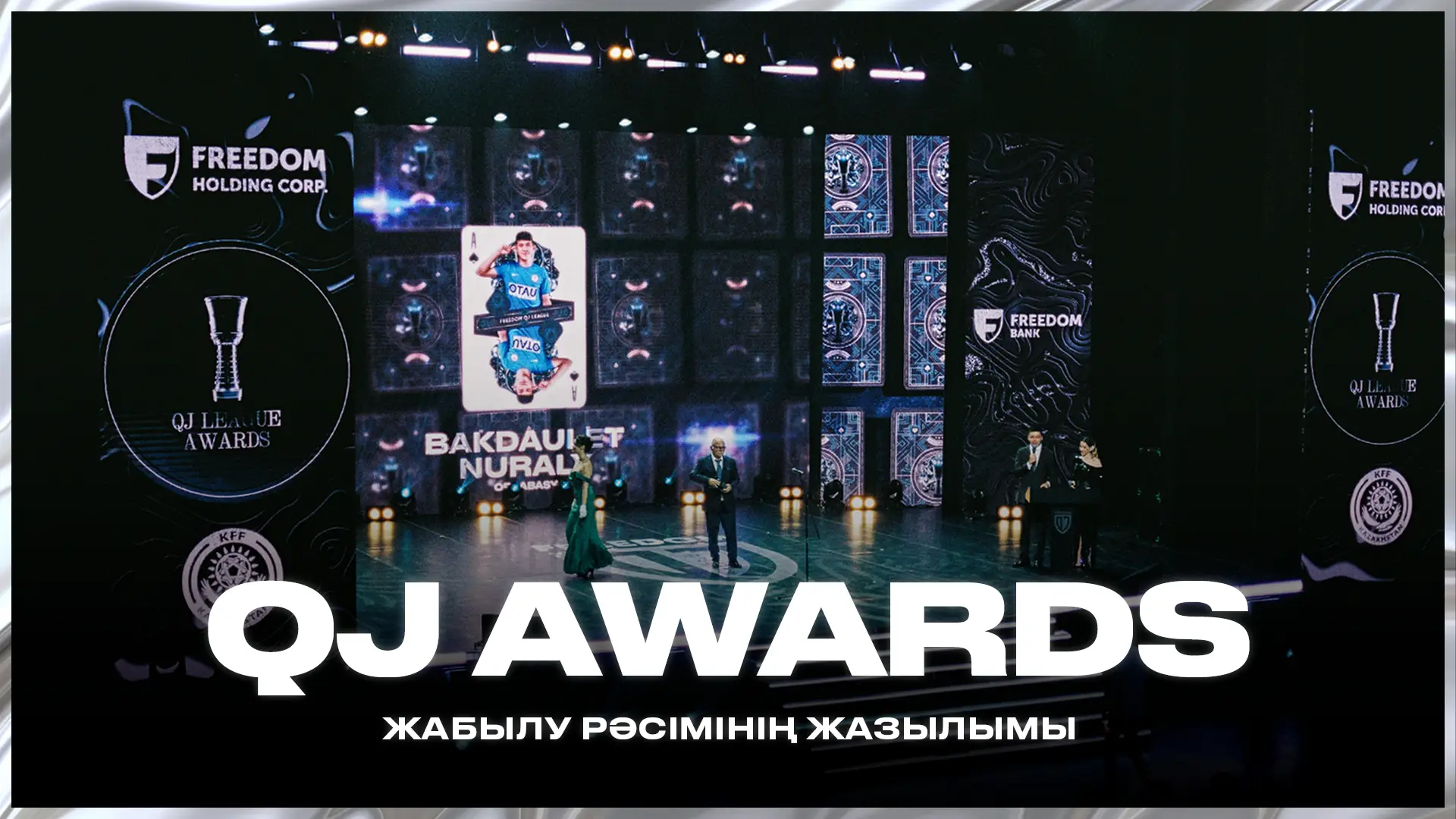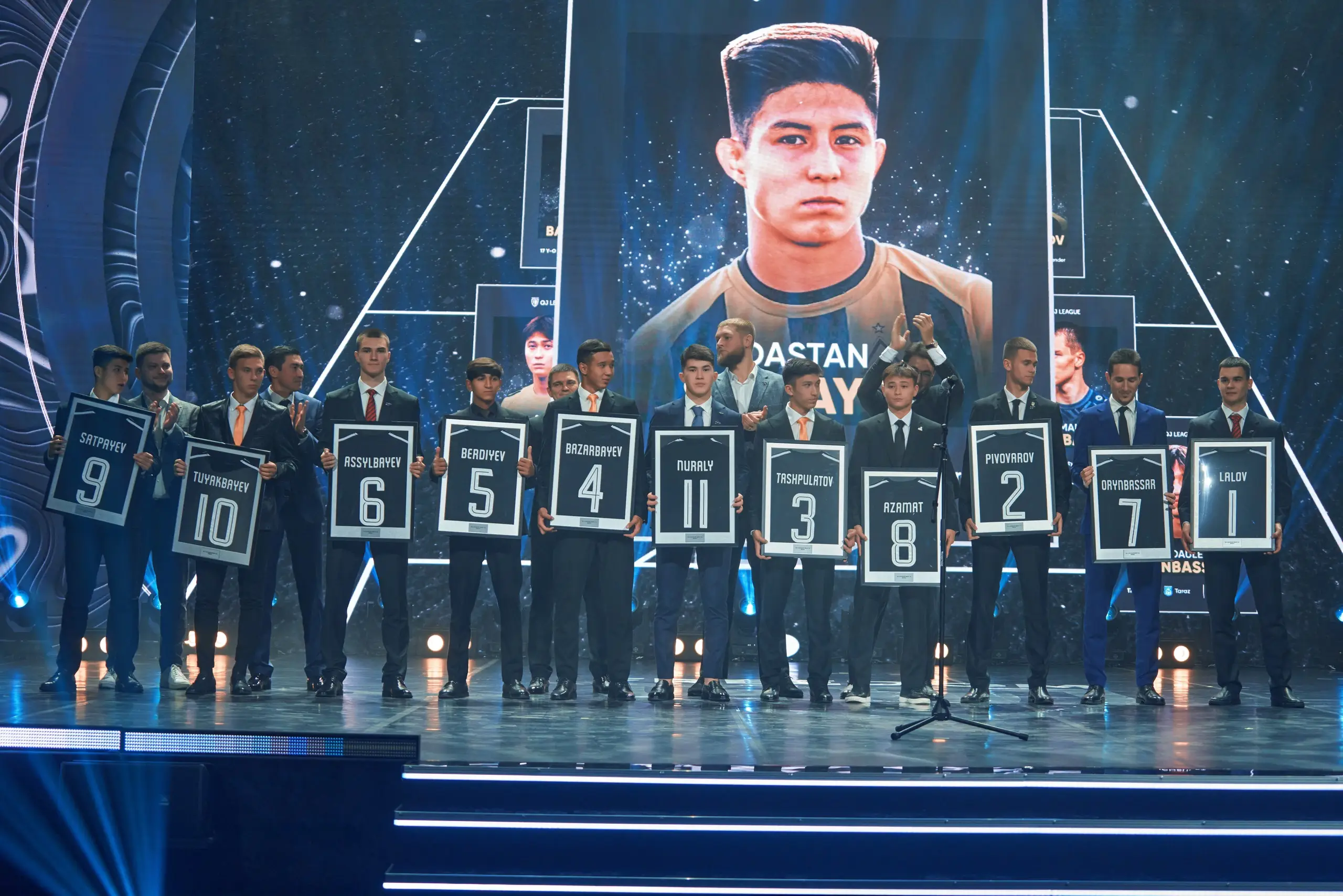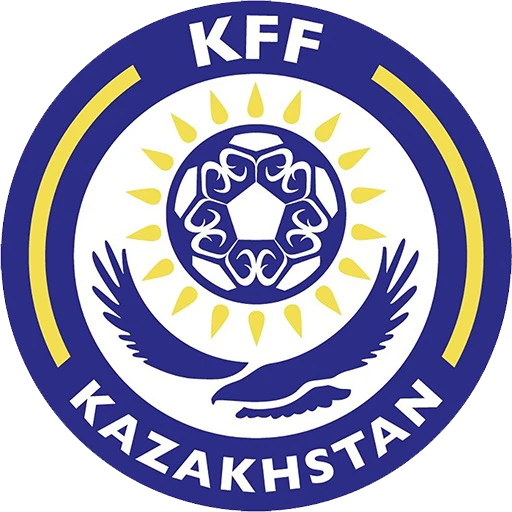President of the Latvian Major Football League Maksims Krivunecs was a guest at the QJ League Awards 2024 and shared his impressions of the ceremony, as well as spoke about the importance of youth football development, what advantages QJ League offers, and whether there are similar projects in Latvia or other European countries
– Mr. Krivunets, not so long ago you attended the closing ceremony of the QJ League. Share your impressions of this event.
– The whole championship and the quality of the organisation – everything is top-notch. To be honest, I have never seen such a high level of youth football before. In Europe, there are many examples of individual academies and youth structures that develop players of a very high quality, but it is very rare to see quality organised domestic championships for young players. Especially we must take into account the difficulties of holding such competitions at the national level in large countries with long travelling teams, as in Kazakhstan. I am sincerely very happy for my colleagues and friends from the QJ League.
– What did you know about the project before your visit to Kazakhstan?
– Of course, I have been following the project through social media and it was a great motivation for me to come, see everything with my own eyes and get to know the QJ League team. There are no analogues of this scale in youth football in Europe that I know of. Perhaps something similar exists, but I have not come across anything so professionally organised and independent, with dedicated funding, a team of professionals, quality marketing and a high level of game production. So it was with great interest that I came to see everything live and I must admit that my expectations were exceeded.
– You work in Latvia. Can you tell, what similar projects do you or the Baltic States have?
– QJ League could compete with professional leagues not only in the Baltic States, but also in other European championships in terms of organisation. We, in Latvia, do not have championships at this level yet. Of course, there are programmes and competitions for the development of youth football, national and Baltic tournaments are held, and our teams strive to participate in international competitions to improve their level. However, we do not yet have such a quality organised and competitive championship at youth level.
– Have you thought of launching something similar in Latvia?
– Absolutely, but it should be realised that the development of youth football is mainly within the tasks of the federation, and such initiatives require significant resources. We are, of course, happy to share our knowledge and experience if such an initiative emerges within the Latvian Football Federation. It should be noted that projects of this level require significant financial investments, and I can only express my respect to the QJ League team and its manager Rokhus Rokhusovich for the fact that they have managed to attract major international partners and create such a large-scale project.
– What can you call the closest analogue of the QJ League in Europe? What are the similarities?
– It is quite difficult to find an analogue at youth level – in my opinion there are no such examples. I would rather compare the QJ League to the professional leagues as it is really at a high level, especially in terms of organisation and marketing.
– What, in your professional opinion, is the main advantage of the League?
– The main advantage of any successful league is the team that organises it. If the organisers can develop a development strategy, develop rules and regulations, attract funding and use it effectively, this is the key to success. In QJ League I see a strong and professional team, as well as clear strategic planning. This is the future of Kazakhstan, the future of Kazakhstani football, and we will be interested to watch the growth and development of young talent. I think that many clubs in Europe will also closely monitor the emergence of promising players.
The second important factor is the co-operation between the league and the clubs. If the clubs support the project and jointly help to develop it, the results will come very quickly. You have football history, you have professionals and I am sure that together you will achieve high results.
– How many years do you think it takes for the work of the League to bear fruit for the national team?
– In modern football there are examples when young players at an early age start playing for the main teams of clubs and even for national teams. However, it takes time, usually 2-4 years, for a player to fully transition from youth to adult level. Of course, super talents can progress faster, such as Jamal Musiala, who already at 17 played for Bayern Munich or Lamine Yamal at Barcelona. In general, youth football needs time to adapt to adult demands, but judging by the fact that QJ League players are already playing in senior teams, this process is not far off. The national team could feel the effects of the QJ League in the next couple of years.
– What could you wish to the League participants, coaches, players?
– I can only wish one thing – not to stop at what has been achieved. I see that all the participants enjoyed this tournament, they tasted victory, and it is very important to maintain a high level of ambition. You should always strive for results and stay hungry for victories to keep motivated. I repeat – QJ League is at a very high level of organisation. Of course, in order to achieve success you need quality training at club level, but we can see that it is already happening. Don't stop, keep moving forward. We will follow you and hope for further progress.


.webp)


(0).webp)

(0).webp)



.webp)
.webp)

.webp)



.webp)

